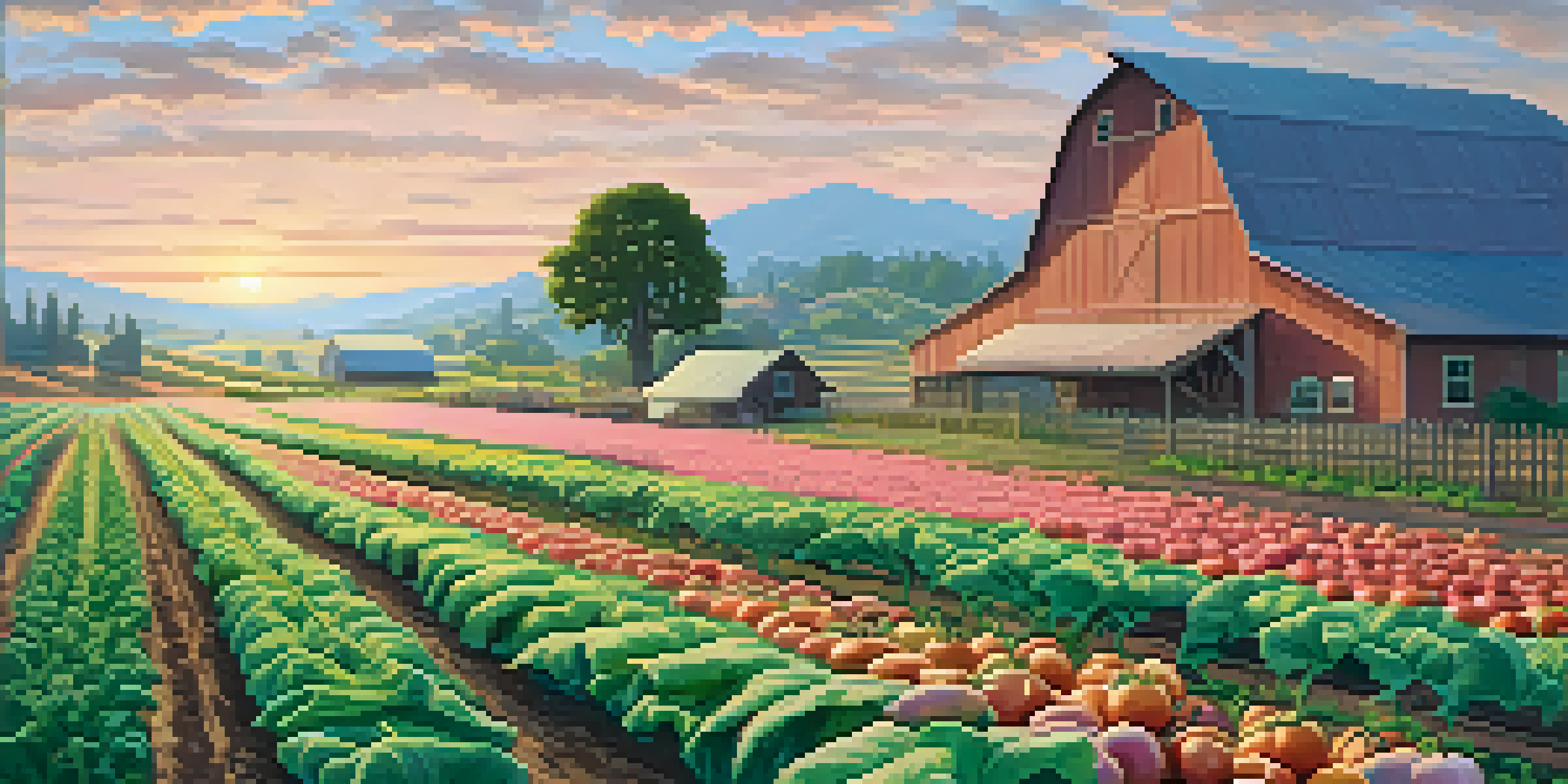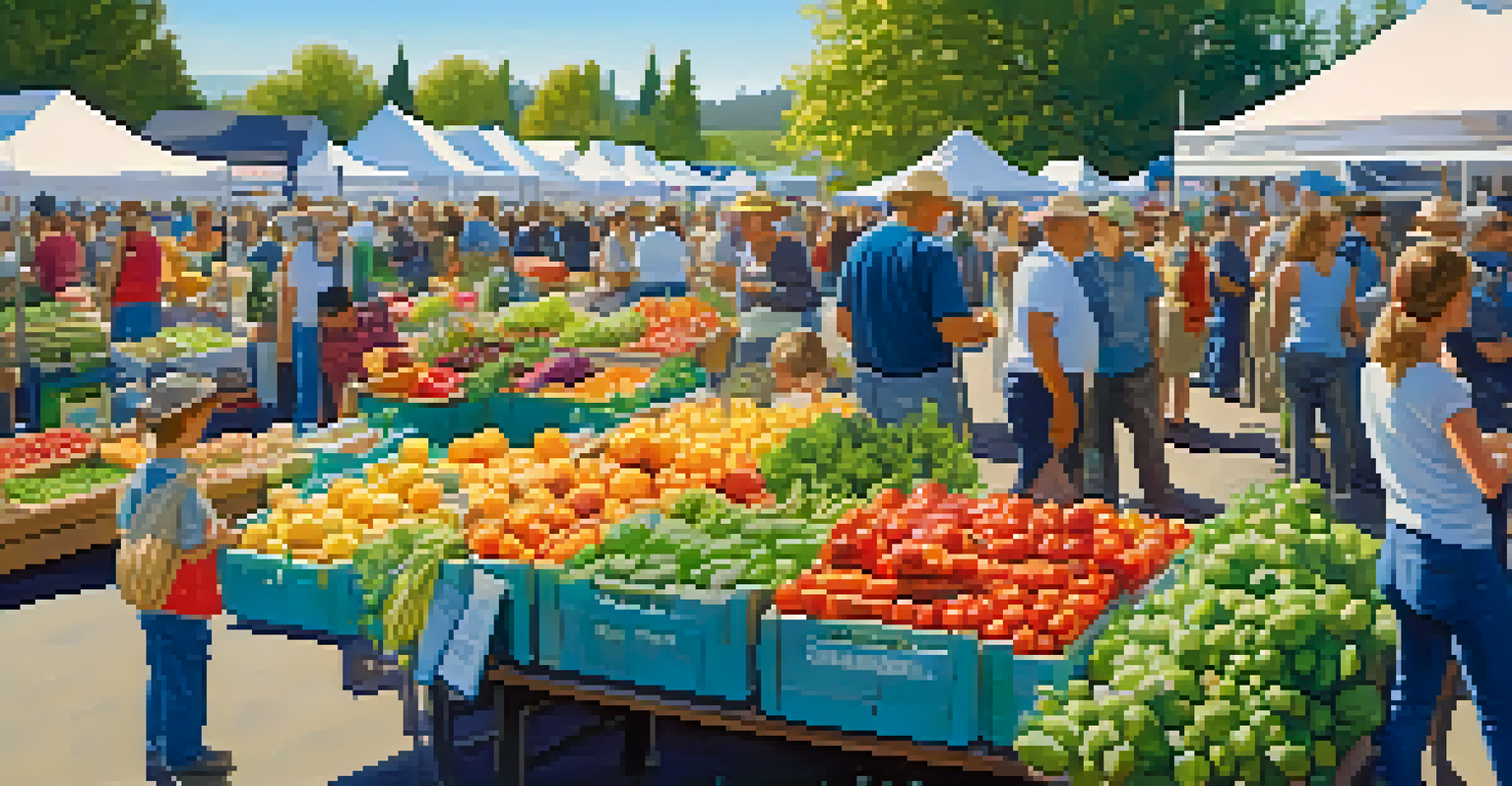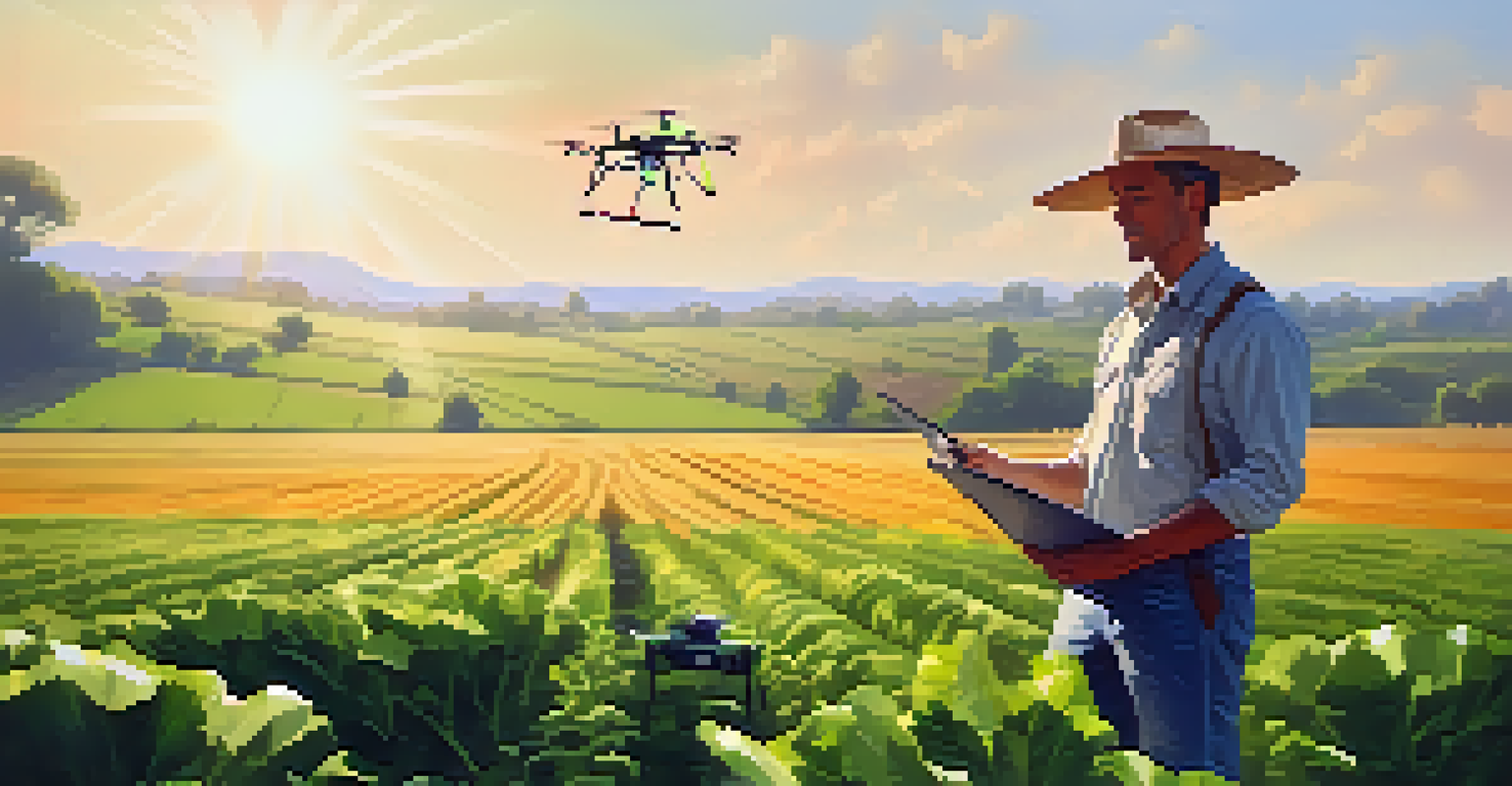Organic Farming Trends in Oregon: Growth and Consumer Demand

The Rise of Organic Farming in Oregon
Oregon has become a beacon for organic farming, with a landscape that supports diverse agricultural practices. Farmers are increasingly shifting towards organic methods, motivated by both environmental concerns and market demand. This shift isn't just a trend; it's a reflection of a growing awareness of sustainable practices among consumers and producers alike.
Sustainable agriculture is the future of farming, and organic practices are at the heart of that future.
According to recent statistics, the organic farming market in Oregon has seen significant growth over the past decade. The state's unique climate and rich soil create ideal conditions for organic crops, making it a favorable location for farmers. This growth is not only beneficial for farmers but also supports the local economy and promotes healthier food options.
As more farmers adopt organic practices, they contribute to a vibrant community that prioritizes sustainability. This collaborative spirit fosters innovation and knowledge sharing, which benefits the entire agricultural sector. The rise of organic farming in Oregon illustrates a successful blend of tradition and modernity in agriculture.
Consumer Demand: The Driving Force Behind Organic Growth
Consumer demand for organic products has skyrocketed in recent years, prompting farmers to adapt their practices accordingly. Health-conscious shoppers are increasingly seeking out organic options, believing they are better for both personal health and the environment. This shift in consumer preferences is reshaping the agricultural landscape in Oregon.

Oregon consumers are particularly passionate about supporting local farmers, and this trend is evident in farmers' markets and grocery stores. Many shoppers are willing to pay a premium for organic products, understanding the value they bring in terms of quality and sustainability. This willingness to invest in organic goods is crucial for the continued growth of the organic farming sector.
Oregon Leads in Organic Farming
Oregon's unique climate and strong consumer demand have driven significant growth in organic farming, emphasizing sustainability and community support.
Moreover, the demand for transparency and traceability in food sourcing has led to an increase in organic certifications. Consumers want to know where their food comes from and how it's produced, and organic labels provide that reassurance. As a result, farmers are responding by enhancing their practices and promoting their products more effectively.
Sustainability Practices in Organic Farming
Sustainability is a core principle of organic farming, and Oregon farmers are at the forefront of implementing eco-friendly practices. Techniques such as crop rotation, cover cropping, and integrated pest management not only enhance soil health but also reduce the need for synthetic inputs. This focus on sustainability resonates well with environmentally conscious consumers.
When we support organic farming, we are not just investing in food; we are investing in the health of our planet and our communities.
Many organic farms in Oregon are also incorporating renewable energy sources, such as solar panels and wind turbines, into their operations. This commitment to sustainability extends beyond the fields, helping to reduce the carbon footprint of farming. By adopting these practices, farmers are not only meeting consumer expectations but also leading by example in the fight against climate change.
The relationship between organic farming and sustainability is mutually beneficial. As farmers embrace sustainable methods, they improve their yields while protecting the environment. This approach not only helps farmers thrive but also ensures that future generations can enjoy the bounty of Oregon’s agricultural resources.
Challenges Facing Organic Farmers in Oregon
Despite the growth of organic farming, many farmers face significant challenges in Oregon. One major issue is the competition from non-organic farms, which can often produce crops at a lower cost. This price disparity can make it difficult for organic farmers to maintain their profit margins, especially in a market increasingly saturated with organic options.
Additionally, organic farmers often deal with stricter regulations and certification processes, which can be time-consuming and costly. Navigating these requirements requires a commitment to quality and compliance, which can be daunting for smaller operations. Many farmers must balance these challenges while continuing to innovate and meet consumer demands.
Consumer Demand Fuels Organic Growth
Health-conscious consumers are increasingly seeking organic products, prompting farmers to adapt their practices to meet this demand.
Weather variability and climate change also pose risks to organic farming in Oregon. Unpredictable weather patterns can affect crop yields and pest management strategies. As a result, farmers must remain agile and resourceful, adapting their practices to ensure resilience in the face of these challenges.
Innovative Technologies Shaping Organic Farming
Technology is revolutionizing organic farming in Oregon, helping farmers improve efficiency and productivity. From precision agriculture tools that monitor soil health to drones that assist with crop management, innovation plays a critical role in modern farming. These technologies enable farmers to make informed decisions, optimizing their operations and reducing waste.
Many organic farmers are also utilizing data analytics to track market trends and consumer preferences. By analyzing this information, they can adapt their strategies to meet consumer demands more effectively. This data-driven approach not only enhances profitability but also fosters a deeper connection with their customer base.
Moreover, the rise of online marketplaces and e-commerce platforms has opened new avenues for organic farmers to reach consumers directly. This shift allows farmers to showcase their products and tell their stories, fostering a sense of community and trust. As technology continues to advance, the future of organic farming in Oregon looks bright.
The Role of Community in Supporting Organic Farming
Community support is vital for the success of organic farming in Oregon, as local networks play a significant role in fostering collaboration. Farmers often rely on one another for advice, resources, and shared experiences. This sense of community not only strengthens individual farms but also enhances the overall resilience of the agricultural sector.
Local organizations and nonprofits also contribute by providing education and resources for organic farmers. Workshops, training sessions, and networking events help farmers stay informed about best practices and market trends. These initiatives empower farmers to adapt to changing conditions and connect with like-minded individuals who share their passion for organic agriculture.
Challenges Persist for Organic Farmers
Despite growth, organic farmers in Oregon face challenges such as competition, regulatory hurdles, and climate change impacts.
Additionally, community-supported agriculture (CSA) programs have gained popularity in Oregon, allowing consumers to directly support local farmers. By purchasing shares in a farm's harvest, consumers foster a direct connection with their food sources, promoting transparency and trust. This model benefits farmers financially while also enriching the community's connection to local agriculture.
Looking Ahead: The Future of Organic Farming in Oregon
The future of organic farming in Oregon appears promising, with continued growth expected in both production and consumer demand. As more people become aware of the benefits of organic products, farmers will likely see an increase in market opportunities. This trend bodes well for the sustainability of the organic sector and its ability to thrive in the long run.
Innovation will play a key role in shaping the future of organic farming, as new technologies and practices emerge. Farmers who embrace change and adapt their methods will be better positioned to meet evolving consumer needs. This adaptability will be crucial as challenges such as climate change and resource management continue to impact agriculture.

Ultimately, the success of organic farming in Oregon will depend on the collective efforts of farmers, consumers, and the community. By working together to support sustainable practices, Oregon can continue to lead the way in organic agriculture, paving the path for a healthier future for both people and the planet.